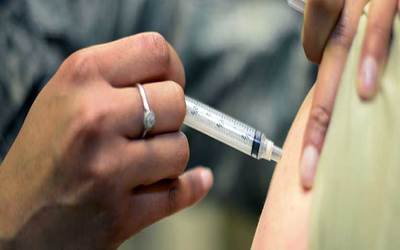Hepatitis B Vaccine protects against Hepatitis B virus which causes a serious contagious liver infection.
[the_ad id=”14222″]
Hepatitis B infection can give rise to jaundice in the acute stage and chronic liver disease or liver cancer in the later stages. It can be fatal too.
How does one get Hepatitis B Infection?
Hepatitis B virus is easily spread through contact with the blood or other body fluids of an infected person either by unprotected sex, blood transfusion or being stuck with same needle.
A baby whose mother is infected can be infected at birth during delivery.Breast feeding from infected mother does not transmit the infection to baby.
When should a baby get the Vaccine?
Recommendations: There are different schedules:
- Birth, 6 weeks and 6 months (preferred, especially if mother is infected i.e. HBsAg POSITIVE).
- OR 6, 10 and 14 weeks.
- OR Birth, 6 weeks, 10/14 weeks.
- OR Children/adolescents: 0, 1, 6 months.
How Effective is the Vaccine?
Effectiveness: 90% effective against hepatitis B infection.
Are there any Side Effects with the Vaccine?
Contraindications: History of a severe allergic reaction after a previous dose of Hep B vaccine.
Side effects: Rarely, fever, pain, redness and swelling at vaccination site.
Will the Child be protected from Jaundice once the Vaccination in Done?
Hepatitis B vaccine confers protection only against liver problems caused by hepatitis B virus. There are several other causes of jaundice, most common being hepatitis A and hepatitis E infection
Can HBV Vaccine be given simultaneously with other Vaccines?
Yes, it can be safely given with other vaccines.
What if we miss a Dose, Do We need to repeat the complete schedule?
The child should receive the remaining doses. There is no need to repeat the dose/ doses already received.
Is there a need for booster dosed?
This was a previous recommendation. Now booster doses are not routinely advised.
Do Adults need to take the Vaccine too?
All children and adolescents upto 18 years need to get the vaccine.Hepatitis B vaccine is recommended for un-vaccinated adults who are at risk for hepatitis B virus infection, including:
- People whose sex partners have hepatitis B
- Sexually active persons who are not in a long-term monogamous relationship
- Persons seeking evaluation or treatment for a sexually transmitted disease
- Men who have sexual contact with other men
- People who share needles, syringes, or other drug-injection equipment
- People who have household contact with someone infected with the hepatitis B virus
- Health care and public safety workers at risk for exposure to blood or body fluids
- Victims of sexual assault or abuse
- Travelers to regions with increased rates of hepatitis B
- People with chronic liver disease, kidney disease, HIV infection, or diabetes
- Anyone who wants to be protected from hepatitis B
Source

